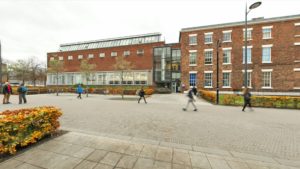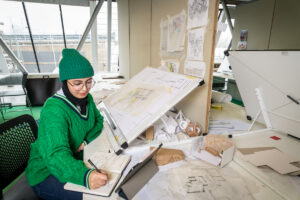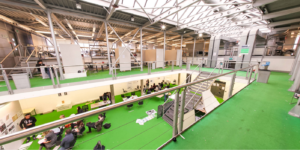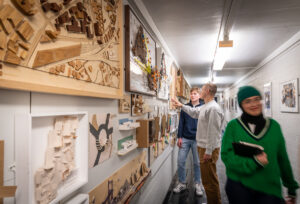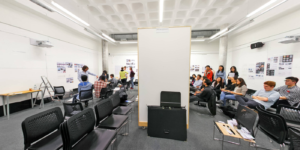How you'll learn
The majority of the modules will be taught within the Liverpool School of Architecture (LSA), with four elective modules taught within the departments of History and Philosophy. The programme is designed to allow equal opportunities for students both with and without prior specialist architectural training, as it is open to students from different background with interest in heritage.
In addition to the mandatory modules, all students can select from a range of optional modules that provide deeper knowledge of a specific topic or area in heritage studies. The modules are taught in a variety of ways – traditional lectures centred on fundamental principles and heritage applications, group discussions in workshops, flipped classroom, guided independent study, tutorials, hands-on workshops, discussions with heritage specialists and practitioners, learning from case studies and field trips.
Additionally, the placement opportunities with different heritage institution will help the studnets to develop their work skills.
How you're assessed
The assessment strategies for the modules incorporated in this MA programme reflect the variety of teaching approaches used, and include poster submissions, analytical reports, essays, sustainable heritage management plan, heritage design project, oral and practical presentations, and a research dissertation or a design project led by research.
Liverpool Hallmarks
We have a distinctive approach to education, the Liverpool Curriculum Framework, which focuses on research-connected teaching, active learning, and authentic assessment to ensure our students graduate as digitally fluent and confident global citizens.
The Liverpool Curriculum framework sets out our distinctive approach to education. Our teaching staff support our students to develop academic knowledge, skills, and understanding alongside our graduate attributes:
- Digital fluency
- Confidence
- Global citizenship
Our curriculum is characterised by the three Liverpool Hallmarks:
- Research-connected teaching
- Active learning
- Authentic assessment
All this is underpinned by our core value of inclusivity and commitment to providing a curriculum that is accessible to all students.

